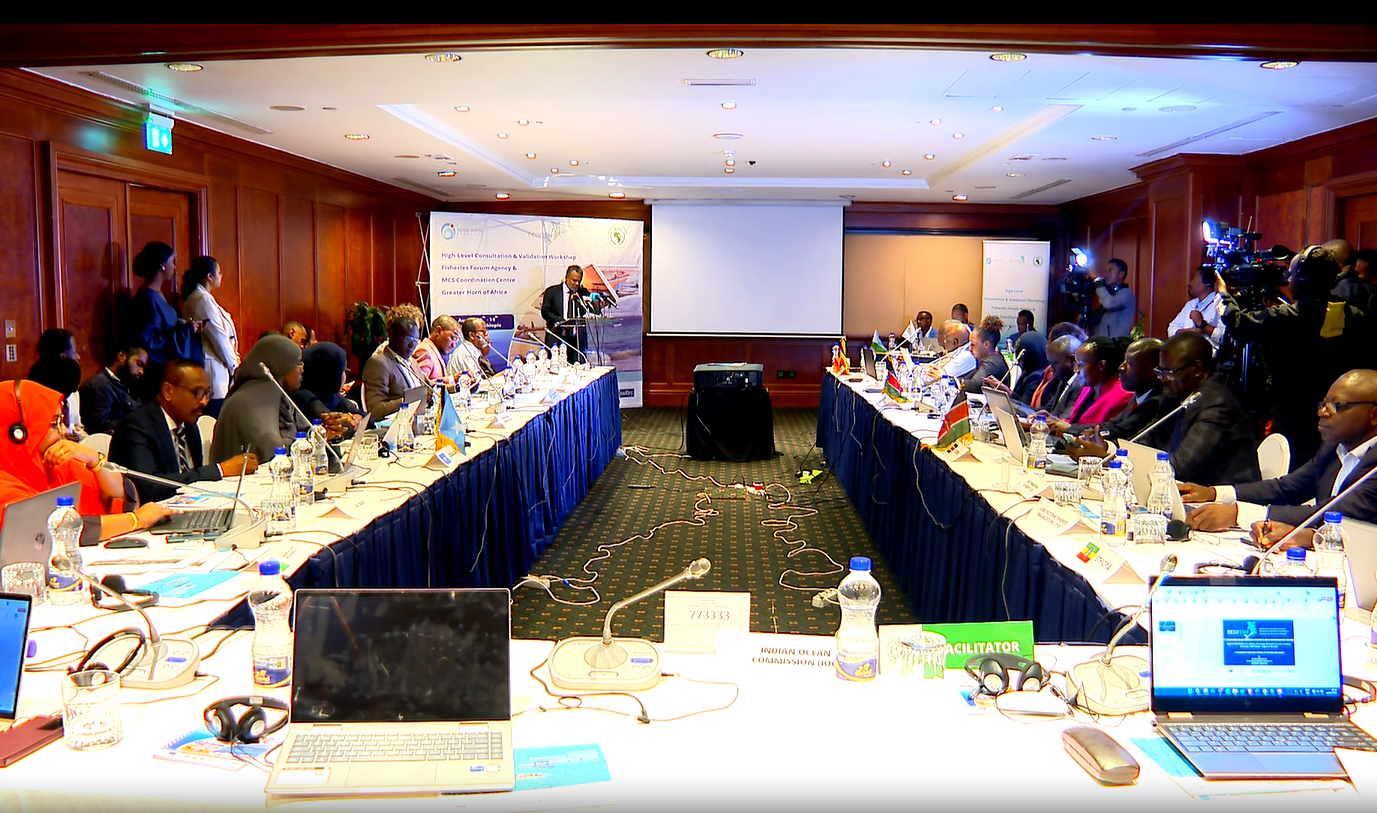IGAD Launches High-Level Fisheries Governance Workshop to Boost Regional Blue Economy - ENA English
IGAD Launches High-Level Fisheries Governance Workshop to Boost Regional Blue Economy

Addis Ababa, August 13, 2025 (ENA) -- A High-Level Consultation and Validation Workshop aimed at strengthening fisheries governance and establishing a Fisheries Forum Agency and a Monitoring, Control and Surveillance (MCS) Coordination Centre under the Intergovernmental Authority on Development (IGAD) opened in Addis Ababa today.
Opening the three-day event, Agriculture State Minister Fikru Regassa said Ethiopia’s landlocked status has not hindered its fisheries potential, with significant opportunities in aquaculture and freshwater resources from Transboundary Rivers and diverse lake systems.
“Our 10-year master plan for fisheries and aquaculture, coupled with the Yelemat Turufat (The Bounty of the Basket) initiative, has already tripled fish production and introduced innovative technologies such as mono-sex male tilapia fry production,” he noted.
The Grand Ethiopian Renaissance Dam (GERD) also holds vast potential for fisheries and aquaculture, alongside the nation’s broader water harvesting programs, he added.
According to the State Minister, the establishment of the IGAD Fisheries Coordination Center would be a “thoughtful approach” to tackling overfishing, fragmented governance, climate change impacts, and IUU (illegal, unreported, and unregulated) fishing.
“We remain committed to the IGAD Blue Economy Agenda and the Sustainable Fisheries Strategy 2021–2025, ensuring that our collaborative efforts today benefit both current and future generations,” Fikru affirmed.
IGAD Agriculture and Environment Division Director Daher Elmi stressed the vast but underutilised fisheries potential in the region, which currently produces only around 1 million tonnes of fish annually out of an estimated potential of 3.5 million tonnes.
“Over 85 percent of our fish is from inland waters, yet marine resources in the Red Sea, Gulf of Aden, and Western Indian Ocean remain largely untapped for trade and food security,” he said.
The Director identified weak governance, inadequate infrastructure, and rampant IUU fishing—particularly in Somalia’s waters —as major obstacles.
“We must act collectively, drawing lessons from successful regional mechanisms such as the SADC MCS Coordination Centre in Mozambique to build a robust system that protects our resources and enhances regional trade,” he said.
The workshop focuses on building consensus on institutional design, governance arrangements, and financing models for the IGAD Fisheries Forum Agency and the MCS Coordination Centre, adopting a “common but differentiated” approach to address both inland and marine fisheries, it was learned.
Expected outcomes include a detailed operational roadmap, resource mobilisation strategies, and strengthened regional cooperation, drawing on lessons from other African and Indian Ocean regional bodies.
Participants include senior technical officials from IGAD Member States, representatives from regional economic communities such as COMESA, EAC, and SADC, African Union institutions, development partners, the private sector, and civil society.
By the end of the workshop on August 14, organizers aim to have a clear, actionable plan to transform the region’s fisheries sector into a key driver of food security, employment creation, and regional integration, in line with Africa’s Agenda 2063 and the IGAD Vision 2050.